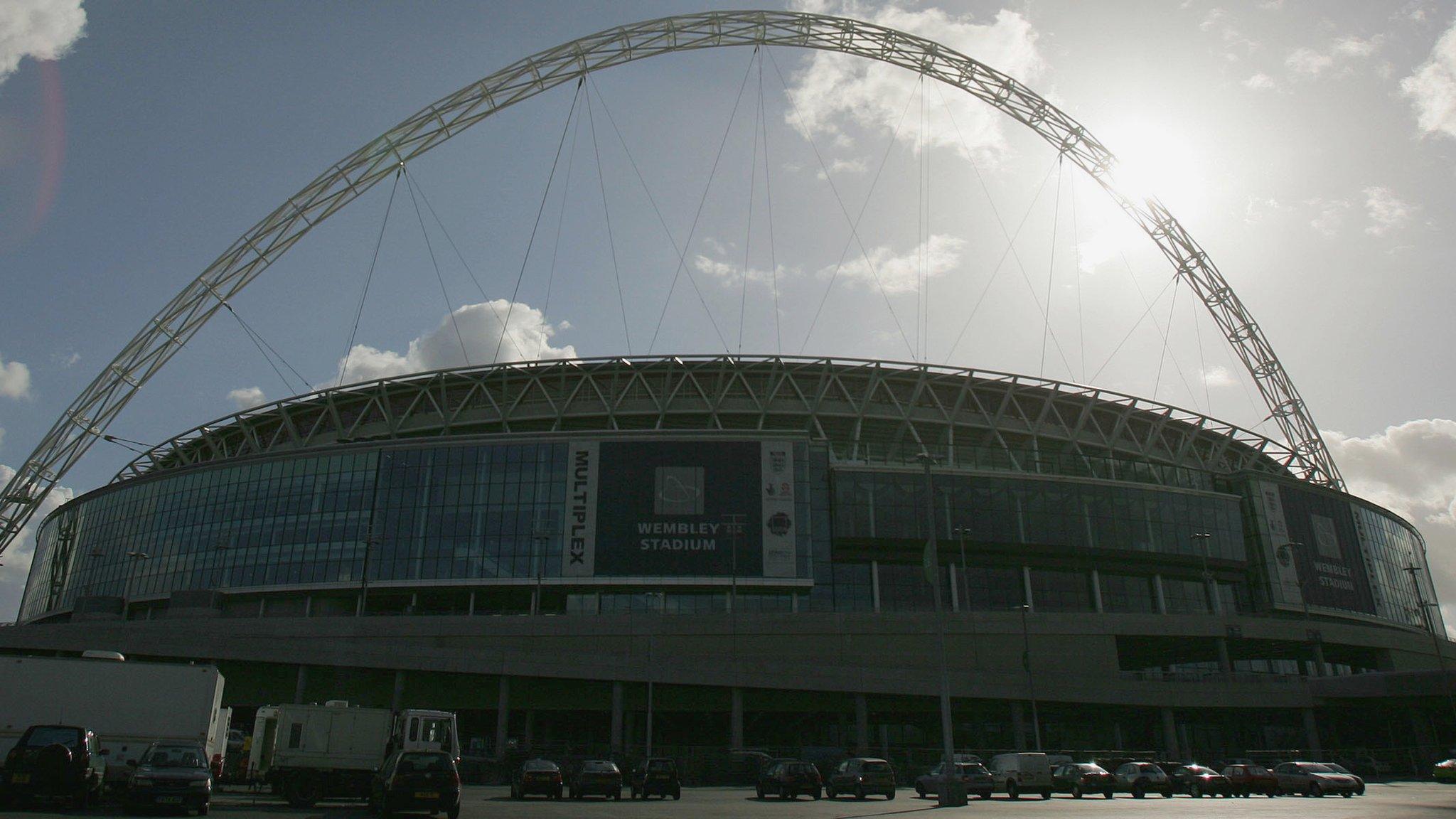FA reform: As MPs debate the issue, is real change a stretch too far?
- Published
- comments
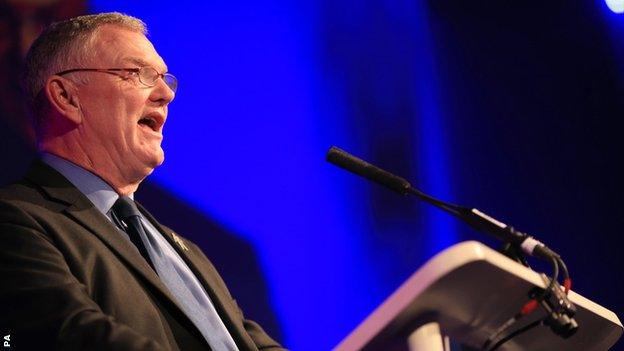
FA chairman Greg Clarke has vowed to resign if his plans for reform are not backed by the government
Reform of the FA? Haven't I heard this one before?
Yes, we've been down this road many times. Does this sound familiar?
"We are making progress, albeit slowly. I intend to see that we continue to make progress by continuing to meet all the interested parties and bringing them together, if necessary, because all of us are concerned with the health of this great game which has given so much satisfaction, not only to us but to almost the whole nation over the years."
That quote comes from Denis Howell MP, Minister for Housing and Local Government, speaking in the House of Commons in 1968 about reform of the Football Association.
Howell was taking part in a debate on the Chester Report,, external commissioned in 1966 to "enquire into the state of association football at all levels, including the organisation, management, finance and administration, and the means by which the game may be developed for the public good; and to make recommendations".
Now, nearly half a century later, MPs are once more asking roughly the same questions - given the lack of any substantial change.
On Thursday, a Commons debate, external will ask whether the FA has the ability to reform itself, or whether legislation is needed to force it to change.
Damian Collins MP: 'We no longer have any confidence'
What do MPs want?
The crises in governance at some global sports bodies, including football's world governing body Fifa, prompted a rethink over how organisations which receive government funding should operate.
Last year, grassroots funding body Sport England set out required standards for transparency, accountability and financial integrity from those organisations which ask for government and National Lottery funding. The Code for Sports Governance will come into force in April.
It demands, for example, 30% gender diversity on boards, greater transparency and term limits.
The FA is due to meet the Government in the spring to show its plans for achieving the required standards.
But MPs on the Culture, Media and Sport (CMS) Select Committee have run out of patience and are exerting pressure on the FA to ensure it goes through with modernisation. Thursday's backbench debate is another method to do just that.
The committee has previously published two reports which set out how its MPs think:
The Premier League is dominant within English football and should have its influence diluted
The FA's decision-making capabilities should change
There should be greater representation for fans and the grassroots game

The Premier League was known as the FA Premier League in its inaugural season, 1992-93
What role has the Premier League played?
In a letter to the chairman of the CMS committee last December, five former FA chairmen and chief executives outlined how they believe the governing body is incapable of change without external assistance in the form of government-backed legislation.
The quintet - David Bernstein, David Davies, Greg Dyke, Alex Horne and Lord Triesman - also laid some of the blame for the failures within English football at the door of the Premier League.
"We can testify first-hand that the FA's decision-making structures are arcane and convoluted leading to a lack of clarity about the role and purpose of these structures," they wrote.
"The FA has neither the modernity of approach nor independence required to counter the [Premier League] juggernaut or to modernise its own governance."
In response, the Premier League said it had "always supported the FA's governance reforms" and had backed previous reform proposals.
A statement at the time read: "We have kept patience when past chairmen and chief executives at the FA have failed to deliver, but will continue to work with the current leadership team at the FA to progress their governance agenda."
The former executives also outlined how the FA board is effectively gridlocked, with members of the professional game and those of the national - or grassroots - game often representing their own interests rather than those of the wider sport.
Former FA Chairman Greg Dyke tells Radio 4's Today FA is like travelling back to 1952
So what needs to happen?
The board of directors, the FA Council and matters such as voting structures all need to change. If not, the FA's public funding - worth £30m over four years - is at risk.
Ultimately, the government could also refuse to act as a financial guarantor if the FA wanted to bid to host a future World Cup or European Championship.
Former FA chairman Dyke said he wanted the council, which is effectively English football's parliament, to be more representative and "better reflect the balance of the modern game".
Of its current 122 members, only eight are women and four are black or ethnic minority. There is also representation from Oxford and Cambridge Universities, something many people see as anachronistic given there is only one representative each from fans and players.
Oh, and 92 of them are aged over 60, while 12 are octogenarians.
Dyke failed in his efforts for reform with some board members opposed, given they believe their roles would be watered down - and his successor must find a way to convince them otherwise.
The FA board, meanwhile, has been amended in recent years with the addition of two independent directors. There are plans to add two female representatives this summer, bringing the total number of members to 14.
It currently consists of four representatives of the national game and four representatives of the professional game, plus two non-executives, the chairman and the chief executive.
Football changes 'not fast enough' says David Davies
Will those changes be enough? And what does the FA have to say?
The FA is privately annoyed at the timing of the debate, believing it should be allowed to set forward its plans in April to Sports Minister Tracey Crouch.
It is also keen to emphasise that it has invested record amounts in grassroots facilities, has led the way on promoting women's football and has developed St George's Park as a hub to improve the fortunes of the England national teams.
But the spectre of legislation - essentially, having change forced upon them - awaits if the FA's reform plans fail.
That would need government backing to bring forward, and there is no sign of that occurring just yet.
FA chairman Greg Clarke has threatened to resign if his plans are not supported. That can probably be viewed as a signal of his confidence of delivering reform to both the board and council, thus satisfying the immediate requirements of the Code for Sports Governance.
Will it make a difference? If so, what?
The glacial pace of the debate has left many involved frustrated, and believing the FA is unable to self-regulate.
The five former executives wrote that meaningful reform "may well move us to redressing the woeful lack of English players or managers and the embarrassing failures of our national team for the past 50 years".
And reform would also see those at the heart of the FA decision-making change to look more like those who actually play, watch and administer the game in 2017.
Thursday's debate, though, is just the latest staging post on what is a very long journey.
- Published9 February 2017
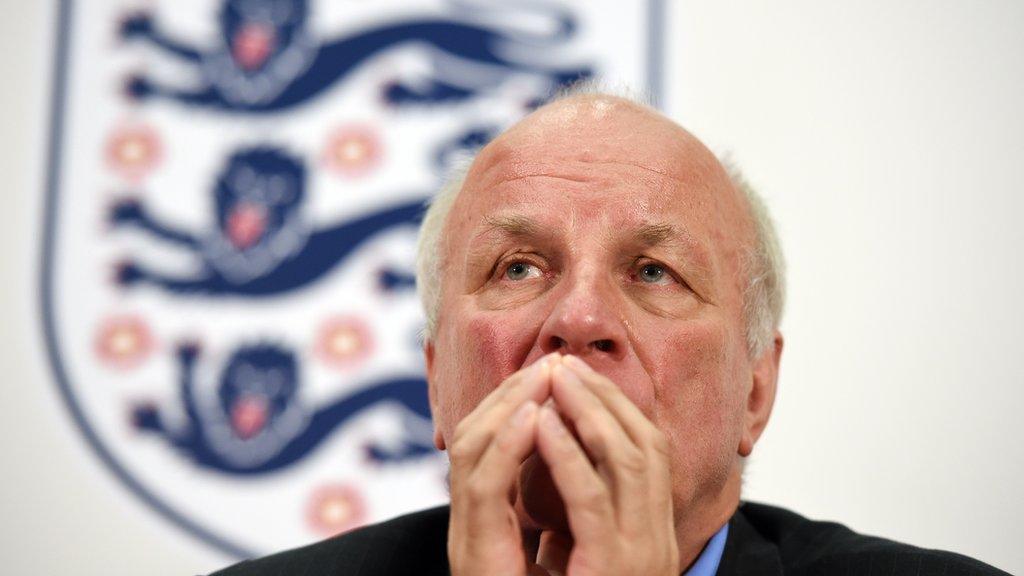
- Published8 February 2017
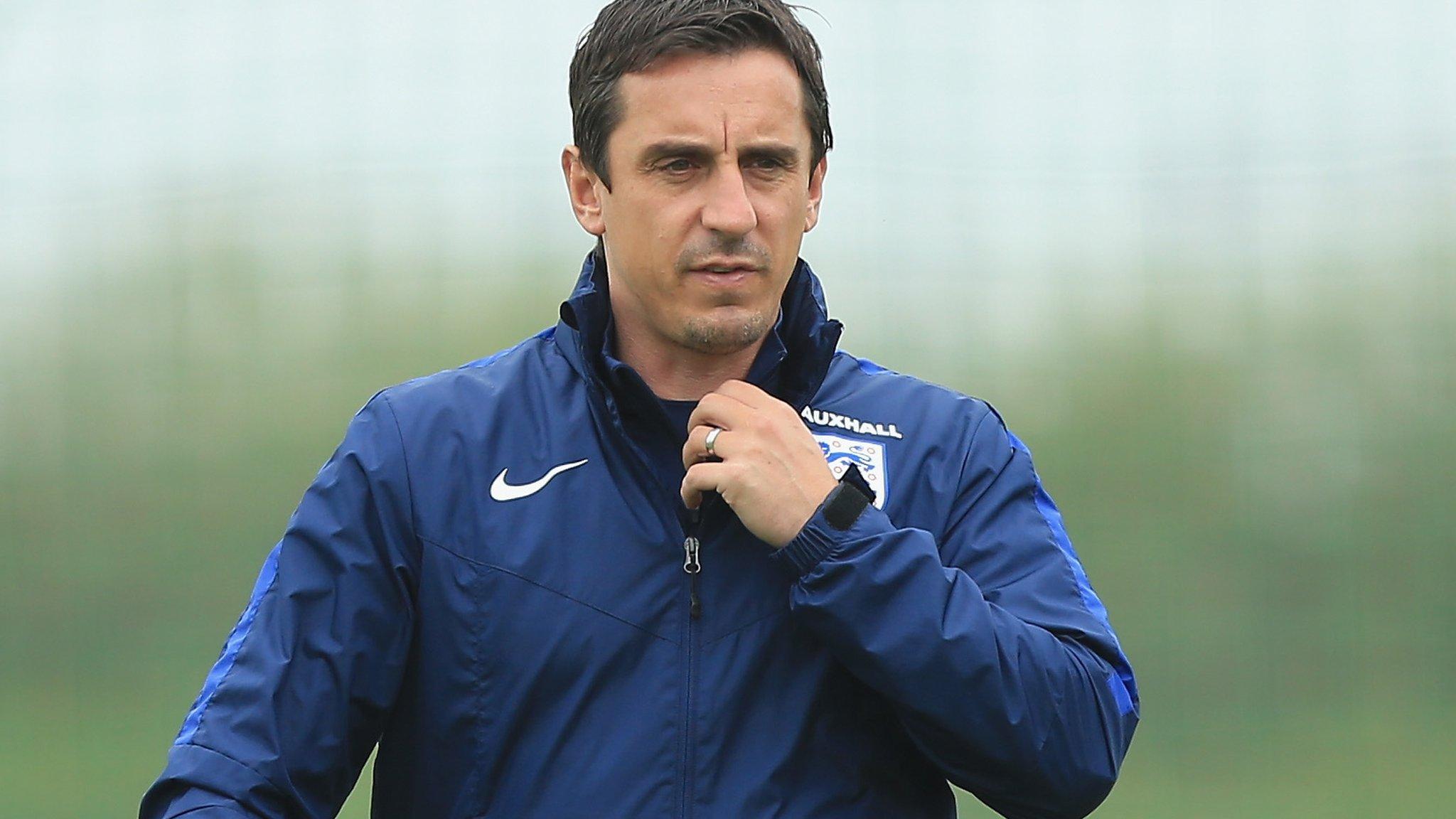
- Published7 February 2017
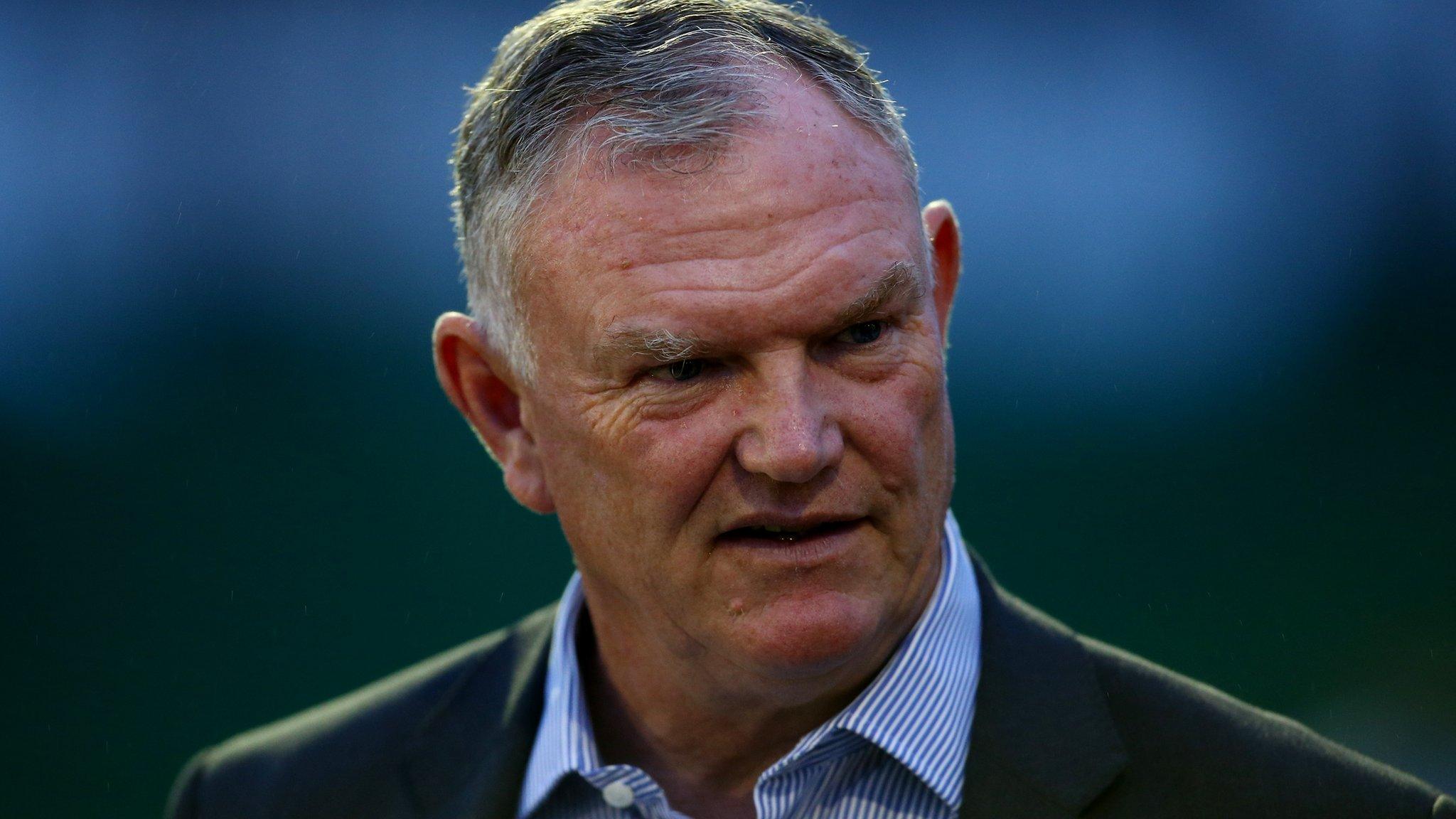
- Published3 February 2017
